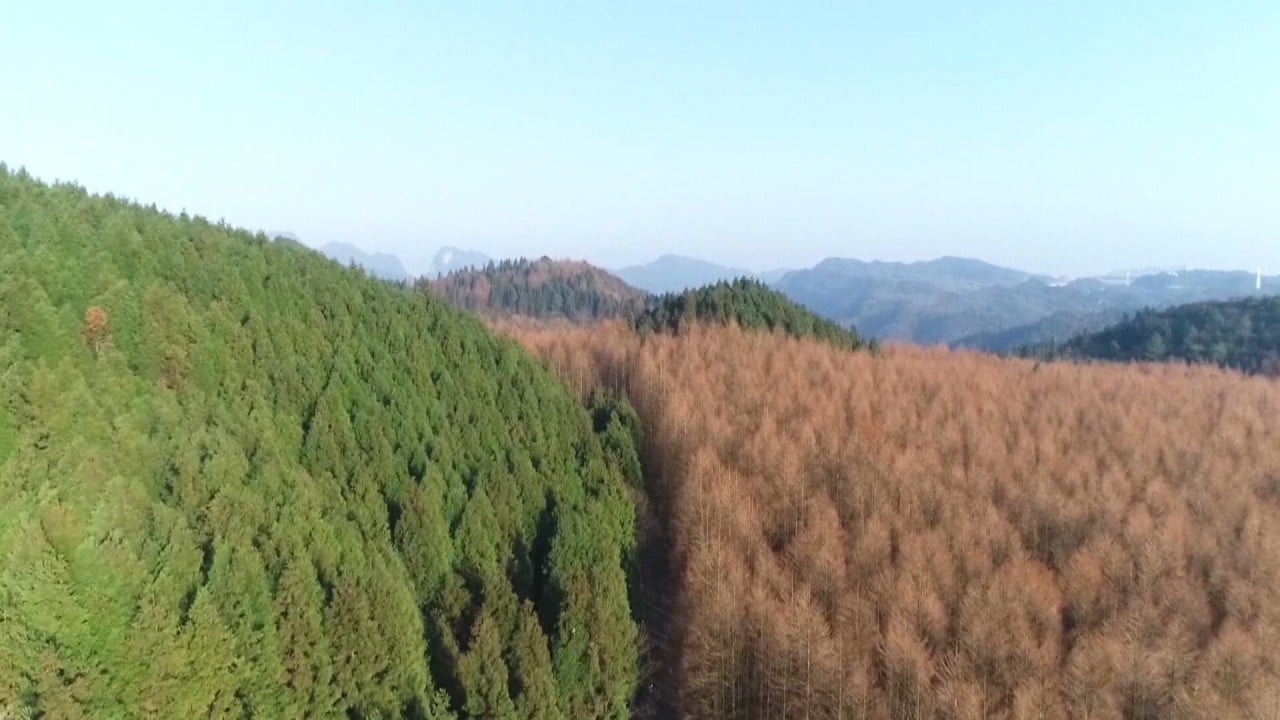
Authorities reject claims a forest in China was destroyed to make way for vineyards
- Gansu government says forest is 4.65 sq km, about the same as when it was planted in 1963 to protect area from desertification and sandstorms
- But environmental group wants an explanation, saying that is nearly half the original size and it is ‘deeply shocked’ by investigation finding
But environmental group the China Biodiversity Conservation and Green Development Foundation did not accept the finding, saying it was “deeply shocked” by the government’s claim that the forested area had remained almost unchanged for the past six decades.
It took almost a year for the case to be heard, but the court ruled that the foundation could not act as a plaintiff, and the environmental group is now appealing.

06:08
Historic Silk Road oasis Dunhuang being swallowed by desert sands in northwest China
Last week, the provincial authorities said they would look into the case after state-run Economic Information Daily reported that the forest – planted in 1963 to protect the area from desertification and sandstorms – had shrunk in size from just over 13 sq km (5 sq miles) in 2000 to just over 3 sq km (1 sq mile) today.
Citing satellite images and official data, the Gansu government on Tuesday said the forested area was about 4.65 sq km (1.79 sq miles), which it said was nearly the same size as when it was planted.
But that is nearly half the original size, according to the foundation. It said there was about 8.9 sq km of forest planted in 1963, citing documents from the Dunhuang government and Yangguan Forest Farm.
Chinese environmental filmmaker says he hopes ban on solid waste imports is just the beginning
Guo Chunwang, deputy secretary general of the Gansu government, insisted that the forest had been the same size for “a long time” and said media reports had incorrectly included the farm’s “operation and management” areas.
He said the investigation also found there had been no expansion of vineyards in the area since 2013.
Environmentalists have warned that planting grapevines could contribute to soil erosion and may have devastating consequences for the area.
Guo said no environmental degradation was found but “lax management” was a problem at the farm.
“There are some weak areas in the management of the forest farm, but it has done a great deal of work in terms of putting in infrastructure and increasing workers’ salaries,” he said.

02:07
As China continues planting trees, 23% of the country is now covered in forest
Wang Jing, spokeswoman for the environmental group, said the data provided by the government on Tuesday was completely different to the data the foundation had obtained from official sources and its own investigation.
But she acknowledged that the provincial authorities had looked into the case swiftly in response to calls from the public, and after a number of media reports on the issue.
“We hope the government can now give an explanation of these figures [on the forest size],” Wang said. “Given the attention this has been given by the government and the public we are cautiously optimistic that this environmental issue can be handled.”
Gansu’s investigation was led by deputy governor Liu Changgen, who previously worked for the national environmental watchdog.
It is the latest in a series of ecological scandals in remote parts of China, including illegal mining in Qinghai province and waste dumping in Inner Mongolia, which highlight how efforts to clean up the environment – a cause championed by President Xi Jinping – often run up against local governments’ efforts to boost the economy.

